Partners
The African Alumni Study is a collective effort of seven world renowned universities who, with the support of The MasterCard Foundation Scholars Program, have joined forces to conduct this pioneering research on the career and life trajectories of our African Alumni populations. For more information on our partners, or to contact a study representative from each university, see the links below.
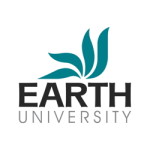 Beginning with its involvement in the international Sustainability, Education and the Management of Change in the Tropics (SEMCIT) project in 1999, EARTH University, located in Costa Rica, Central America, has worked closely with university partners in Latin America, Africa and Asia in charting an agenda for change in higher education in agriculture. In spite of the obvious differences between regions, the challenges confronting higher education and agricultural and rural development in developing nations are remarkably similar. The growing interest shown by African university partners in exploring the EARTH educational model coincided with the admittance of a small number of African students to the University for the first time in 2000. Within the EARTH community, a consensus emerged that building bridges with Africa could bring multiple mutual benefits. In EARTH’s small student body of 410 students, approximately 14% are from countries in Sub-Saharan Africa, with 56 African students enrolled and 49 of them being sponsored by The MasterCard Foundation Scholars Program.
Beginning with its involvement in the international Sustainability, Education and the Management of Change in the Tropics (SEMCIT) project in 1999, EARTH University, located in Costa Rica, Central America, has worked closely with university partners in Latin America, Africa and Asia in charting an agenda for change in higher education in agriculture. In spite of the obvious differences between regions, the challenges confronting higher education and agricultural and rural development in developing nations are remarkably similar. The growing interest shown by African university partners in exploring the EARTH educational model coincided with the admittance of a small number of African students to the University for the first time in 2000. Within the EARTH community, a consensus emerged that building bridges with Africa could bring multiple mutual benefits. In EARTH’s small student body of 410 students, approximately 14% are from countries in Sub-Saharan Africa, with 56 African students enrolled and 49 of them being sponsored by The MasterCard Foundation Scholars Program.
EARTH is deeply committed to “South to South” collaboration. EARTH has partnered for years with the Regional Universities Forum for Capacity Building in Agriculture (RUFORUM). Many senior administrators, professors, lecturers, administrative staff members and graduate students from member institutions have visited EARTH University to experience firsthand the educational model. At the same time, EARTH faculty members have traveled to visit their African colleagues to conduct workshops on experiential education, student-centered pedagogy and value chain development in rural development. The RUFORUM member universities are particularly interested in understanding how they can implement more experiential learning strategies in their programs, how to promote entrepreneurship and how to effectively involve students in rural development initiatives. A great deal of mutual learning has taken place in this collaboration.
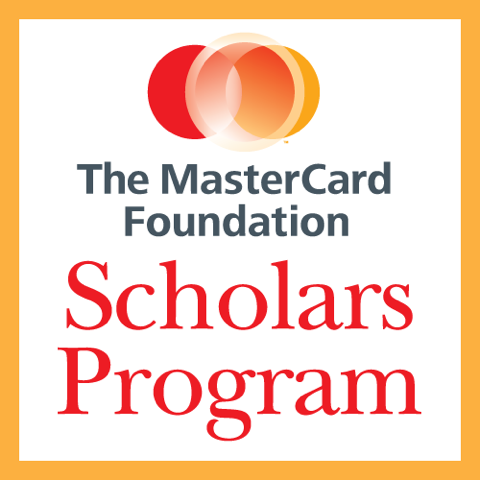 The MasterCard Foundation is an independent, global organization based in Toronto, Canada, with $7 billion in assets. Through collaboration with partner organizations in 49 countries, it is creating opportunities for all people to learn and prosper. The Foundation’s programs promote financial inclusion and advance youth learning, mostly in Africa.
The MasterCard Foundation is an independent, global organization based in Toronto, Canada, with $7 billion in assets. Through collaboration with partner organizations in 49 countries, it is creating opportunities for all people to learn and prosper. The Foundation’s programs promote financial inclusion and advance youth learning, mostly in Africa.
The MasterCard Foundation Scholars Program is a $500 million, 10-year initiative to educate and prepare young people to become leaders of change. The Program selects talented students from disadvantaged communities who have shown leadership potential and a commitment to giving back to their communities. Scholars are provided with access to quality and relevant secondary or university education along with financial, social, and academic support. Throughout their education their leadership skills are encouraged and developed so that Scholars gain skills, values, and competencies needed to succeed in the economy and make positive social impacts in their communities.
 McGill University has a long history of academic and grassroots engagement in Africa, with internships and exchanges that offer students opportunities to pursue fieldwork in a range of Africa nations, as well as programs that offer collaboration and engagement with citizens and communities in Africa. Faculty members also conduct a wide range of health, environmental and social policy research with implications and relevance to Africa. Partnerships with NGOs further strengthen McGill’s ties to Africa.
McGill University has a long history of academic and grassroots engagement in Africa, with internships and exchanges that offer students opportunities to pursue fieldwork in a range of Africa nations, as well as programs that offer collaboration and engagement with citizens and communities in Africa. Faculty members also conduct a wide range of health, environmental and social policy research with implications and relevance to Africa. Partnerships with NGOs further strengthen McGill’s ties to Africa.
Specifically, the Canadian Field Studies in Africa program introduces students to East Africa to increase their understanding of the people, circumstances, and opportunities in the region through research conducted over a six-month period. The Institute for the Study of International Development provides students with access to a network of individuals and agencies working in the field of development in Africa. The Faculty of Medicine’s Global Health Program seeks to establish and facilitate international research collaborations that address priority health challenges. 14 projects are underway in sub-Saharan Africa. The Brace Centre for Water Resources Management conducts interdisciplinary research, teaching, and specialized training in water resources management in Canada and internationally. The McGill Institute for Global Food Security is a world leader in research related to the safety and security of global food supplies, with research projects in Africa, including the KARI-McGill Food Security Project. The Faculty of Law’s International Criminal Justice Clinic provides criminal justice research services to active international criminal tribunals, including the Special Court for Sierra Leone, and the International Criminal Tribunal for Rwanda. McGill’s partnership with the Zawadi Africa Education Fund identifies and provides scholarships for young women from Africa. McGill students participate in the World University Service of Canada’s Student Refugee Program to sponsor a student refugee at McGill for 12 months following his/her arrival in Canada.
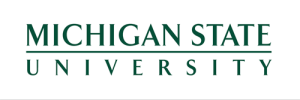 MSU’s history of engagement in Africa traces back more than a half-century, training faculty for African universities and research institutes as well as U.S. university centers of African studies; fighting diseases such as malaria and schistosomiasis; helping to develop more disease-resistant crops; and training Africa’s future researchers, physicians, farmers and leaders. Strategic long-term collaborations have engaged MSU faculty for more than 40 years in Senegal and Zambia; 30 years in Mali; more than 25 years in Malawi; 20 years in Mozambique; and 15 years in Kenya. Additionally, recent faculty research and service activities have occurred in many other countries, including Angola, Burkina Faso, Burundi, Gambia, Ghana, Guinea, Kenya, Namibia, Nigeria, Senegal, South Africa, Tanzania, Uganda, and Zimbabwe.
MSU’s history of engagement in Africa traces back more than a half-century, training faculty for African universities and research institutes as well as U.S. university centers of African studies; fighting diseases such as malaria and schistosomiasis; helping to develop more disease-resistant crops; and training Africa’s future researchers, physicians, farmers and leaders. Strategic long-term collaborations have engaged MSU faculty for more than 40 years in Senegal and Zambia; 30 years in Mali; more than 25 years in Malawi; 20 years in Mozambique; and 15 years in Kenya. Additionally, recent faculty research and service activities have occurred in many other countries, including Angola, Burkina Faso, Burundi, Gambia, Ghana, Guinea, Kenya, Namibia, Nigeria, Senegal, South Africa, Tanzania, Uganda, and Zimbabwe.
Nowhere is MSU’s connection and commitment to Africa demonstrated more strongly than with it’s vast network of African alumni. Between 1960 and 2013 more than 1400 African students from 45 countries have graduated from Michigan State University in a wide range of disciplines spanning all of MSU’s colleges. The “African Alumni Study” will reconnect alumni with their alma mater and serve as an opportunity to build even stronger networks amongst alumni and between alumni and current African MSU students. MSU believes that the future of Africa will be shaped by its young people and is proud to be part of a global network of education institutions through The MasterCard Foundation Scholars Program. Shared values for academic excellence, nurturing environments and programs relevant to growth sectors in Africa create great opportunities for the next generation of leaders who are committed to giving back and achieving positive social transformation in Africa.
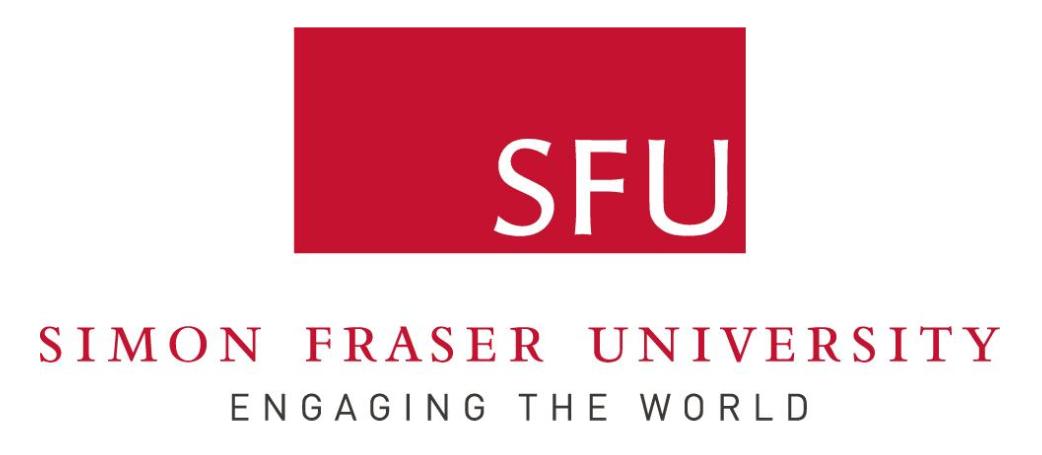 Located in Canada on British Columbia’s west coast Simon Fraser University opened its doors to 2,500 students in 1965. As we approach our 50th anniversary, we have grown exponentially. Today, we have a thriving campus in each of BC’s three major cities, more than 30,000 students, 6,500 faculty and staff, and 120,000 alumni. SFU is consistently ranked as Canada’s top comprehensive university and as one of the top 50 universities under 50 years old. With a commitment to Engaging the World, SFU one of highest number of international students in Canada
Located in Canada on British Columbia’s west coast Simon Fraser University opened its doors to 2,500 students in 1965. As we approach our 50th anniversary, we have grown exponentially. Today, we have a thriving campus in each of BC’s three major cities, more than 30,000 students, 6,500 faculty and staff, and 120,000 alumni. SFU is consistently ranked as Canada’s top comprehensive university and as one of the top 50 universities under 50 years old. With a commitment to Engaging the World, SFU one of highest number of international students in Canada
SFU has had a longstanding history with Africa, with notable alumni such as former Prime Minister of Lesotho, Mosisili Pakalitha (1998-2012), and Vice Presidential candidate and Deputy Governor of the Bank of Ghana, Mahamudu Bawumia. The university has more than two decades of involvement in research and development projects in countries such as Ghana, Malawi, Kenya, South Africa and Zambia, and active engagement and programming in partnership with the African diaspora in Greater Vancouver. The African Students Association is active in providing support to fellow African students, raising awareness about issues related to Africa, and hosting regular events to showcase Africa.
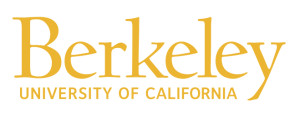 UC Berkeley is actively engaged with the African continent through education, scholarship, faculty-led collaborative research and multi-disciplinary Centers and Institutes across campus. Berkeley is one of six US universities partnering with the MasterCard Foundation Scholars Program, providing comprehensive scholarships to high-achieving and economically disadvantaged youth from sub-Saharan Africa. The 113 MCF Scholars will join an illustrious group of UC Berkeley African Alumni. Records show that an estimated 900 sub-Saharan Africans received degrees from UC Berkeley between 1963 and 2013, spanning over 20 disciplines (top five Public Health, Civil Engineering, Law, Business and Anthropology). The “African Alumni Study” will reconnect alumni with their alma mater and seek opportunities for African alumni to advise and mentor current and future African students.
UC Berkeley is actively engaged with the African continent through education, scholarship, faculty-led collaborative research and multi-disciplinary Centers and Institutes across campus. Berkeley is one of six US universities partnering with the MasterCard Foundation Scholars Program, providing comprehensive scholarships to high-achieving and economically disadvantaged youth from sub-Saharan Africa. The 113 MCF Scholars will join an illustrious group of UC Berkeley African Alumni. Records show that an estimated 900 sub-Saharan Africans received degrees from UC Berkeley between 1963 and 2013, spanning over 20 disciplines (top five Public Health, Civil Engineering, Law, Business and Anthropology). The “African Alumni Study” will reconnect alumni with their alma mater and seek opportunities for African alumni to advise and mentor current and future African students.
UC Berkeley faculty are engaged in action-research on a wide range of issues and challenges that concern the future of Africa. Examples include Justin Brashares, NSF funded project on Biodiversity, Health and Livelihoods, Jason Corburn, urban informal settlements and urban health justice, and Ken Goldberg, African Robotics Network. There are also an increasing number of Berkeley-based Centers working with African partners to develop solutions to social, economic and environmental challenges, including: Center for Information Technology at the Service of Society, Center for Global Public Health, Blum Center for Developing Economies, Center for Effective Global Action, and the Human Rights Center. If you are interested to collaborate with any of these, or other, UC Berkeley-based education, research and development initiatives, please write to the faculty members directly or write [email protected], and we will connect you with the team leaders.
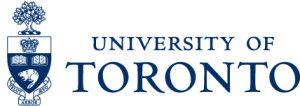 University of Toronto alumni are present in leadership positions in every corner of the world, to learn more about the great minds who are part of the University of Toronto community, our alumni website can enlighten you and reconnect you to your alma mater. International students, their stories and their successes have been a hallmark feature of the University of Toronto history. Our first International Centre opened its doors in 1966 with international support dating back to 1956. African alumni are part of the founding spirit of the international centre of the 1950s. Today, our international students come from over 150 countries and make up twenty per cent of our student body.
University of Toronto alumni are present in leadership positions in every corner of the world, to learn more about the great minds who are part of the University of Toronto community, our alumni website can enlighten you and reconnect you to your alma mater. International students, their stories and their successes have been a hallmark feature of the University of Toronto history. Our first International Centre opened its doors in 1966 with international support dating back to 1956. African alumni are part of the founding spirit of the international centre of the 1950s. Today, our international students come from over 150 countries and make up twenty per cent of our student body.
Through our partnership with the MasterCard Foundation Scholars Program, we have the opportunity to welcome to our university a new generation of scholars from sub-Saharan Africa grounded in a strong tradition of African alumni at the University. The “African Alumni Study” will allow us to reach out to our African alumni throughout the world and across the generations of attendance at the University. Scholarship, research and thought about Africa are furthered by the world class faculty of the University and the richness of the student body. The presence of the MasterCard Foundation Scholars bridges us to our African alumni and engages us in an intergenerational dialogue of transformational leadership.


